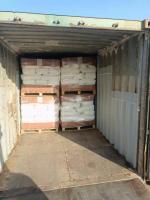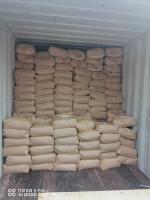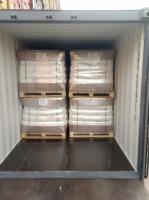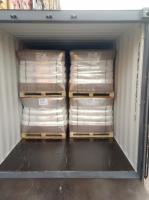Our Products
Flocculant / cationic flocculant Praestol 610BC 321TR 611BC can be replaced by Chinafloc C series

cationic flocculant Praestol 610BC 321TR 611BC can be replaced by Chinafloc C series
Praestol 610BC Praestol 321TR Praestol 611BC are tree cationic flocculant with lower and medium charge and high molecular weight mainly used for water treatment ,Chinafloc C0510 ,Chinafloc C2012 and Chinafloc C3012 can replace of them with good application result
Cationic flocculants, particularly those based on cationic polyacrylamide, are essential in various industrial processes due to their effective flocculation properties. This detailed exploration discusses the numerous applications of cationic flocculants, emphasizing their indispensable roles in water treatment, sludge dewatering, paper making, and other sectors.
Water Treatment with Cationic Flocculants
One of the most critical applications of cationic flocculants is in water treatment. Cationic flocculants are extensively used to improve water clarity and quality by facilitating the aggregation of suspended particles, which are then more easily removed from the water.
Mechanism of Action
Cationic flocculants work by neutralizing the negative charge on particles suspended in water. These particles, typically organic matter, bacteria, and inorganic substances, when unaddressed, contribute to water turbidity and contamination. Cationic flocculants bind to these negatively charged particles, causing them to aggregate into larger clumps or flocs. These flocs settle more quickly than individual particles, simplifying their removal by sedimentation or filtration.
Application in Municipal and Industrial Settings
In municipal water treatment facilities, cationic flocculants are pivotal in both drinking water and wastewater treatment processes. They help remove impurities efficiently, ensuring the treated water complies with safety and environmental standards. In industrial settings, cationic flocculants treat effluents from various sectors, including mining, textile, and food processing, which often contain a complex mixture of chemical pollutants. By using cationic flocculants, industries can prevent potentially harmful substances from damaging aquatic ecosystems.
https://youtube.com/shorts/gdwqLTd6fe0
Benefits of Using Cationic Flocculants
The role of cationic flocculants in water treatment is beneficial for several reasons:
- Enhanced Efficiency: Cationic flocculants speed up the flocculation process, thus reducing overall treatment time and increasing throughput.
- Improved Water Quality: By efficiently removing suspended particles, cationic flocculants help achieve higher water purity.
- Reduced Costs: Efficient particle removal reduces the burden on downstream processes, leading to cost savings in maintenance and operation.
Sludge Dewatering
Another primary application of cationic flocculants is in sludge dewatering, an essential process in managing wastewater treatment by-products.
Role in Sludge Management
Cationic flocculants are used to condition sludge before it undergoes mechanical dewatering processes like centrifugation or filter pressing. The cationic flocculants facilitate the agglomeration of sludge particles, increasing the efficiency of water removal. This enhanced aggregation makes the sludge easier to process and reduces the moisture content of the final sludge cake.
Advantages in Dewatering
The use of cationic flocculants in sludge dewatering offers significant advantages:
- Improved Dewatering Performance: Cationic flocculants increase the capture of solids, leading to dryer sludge and more efficient dewatering.
- Lower Handling and Disposal Costs: Reducing the volume and weight of sludge decreases the costs associated with its transport and disposal.
- Environmental Compliance: Efficient dewatering reduces the ecological footprint of waste management practices.
Paper Industry
Cationic flocculants play a crucial role in the paper industry, where they are used to improve the retention of fines and fillers during the papermaking process.
Papermaking Enhancement
The addition of cationic flocculants to the paper stock promotes better retention of fibers and fillers, which improves paper quality and reduces waste. Cationic flocculants help form a more uniform paper sheet, leading to enhanced strength properties and reduced spots and holes in the final product.
Economic and Environmental Impact
The role of cationic flocculants in the paper industry is both economically and environmentally beneficial:





